In today's digital age, navigating data privacy compliance can feel overwhelming, but you're not alone in this journey. Whether you're a business owner or just an individual trying to protect your personal information, understanding the nuances of data privacy regulations is crucial. With constant changes in laws and guidelines, staying informed is key to ensuring you're compliant and safeguarding your data. So, let's dive deeper into some essential tips and insights that can help you navigate this complex landscapeâread on to discover more!
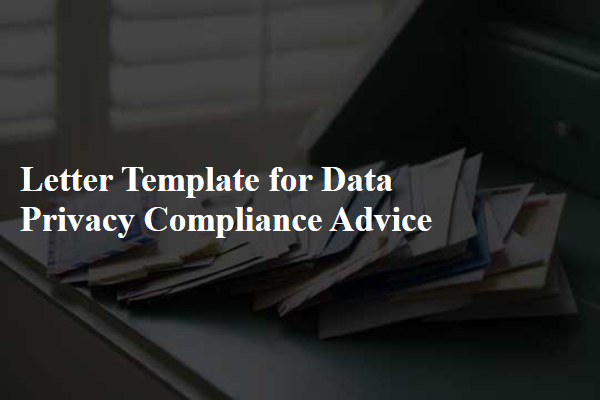
Legal Regulations
Data privacy compliance is essential for organizations navigating legal regulations such as the General Data Protection Regulation (GDPR) in the European Union, which mandates data protection measures for handling personal data of individuals. Compliance requires comprehensive data management strategies, including data minimization, ensuring only necessary data is collected and processed. Organizations must conduct Data Protection Impact Assessments (DPIAs) to evaluate risks associated with processing activities, specifically if data processing poses a high risk to individual rights. Furthermore, privacy notices must inform individuals about data handling practices and their rights under laws like GDPR and California Consumer Privacy Act (CCPA) in the United States, both emphasizing transparency and accountability. Non-compliance can result in severe penalties, including fines up to 4% of annual global turnover under GDPR.
Data Collection and Usage
Data privacy compliance is essential for any organization collecting personal information. The General Data Protection Regulation (GDPR) outlines strict guidelines for data collection, requiring transparency with individuals regarding how their data is used. Organizations must clearly define the purpose of data collection, whether for marketing (such as email newsletters) or customer service enhancements (like personalized recommendations). Consent mechanisms must be robust, indicating that individuals have the right to withdraw their consent at any time. Additionally, businesses must implement measures to safeguard sensitive data, such as encryption protocols, particularly when handling data like Social Security numbers or financial information. Regular audits must assess compliance with data usage and collection policies, ensuring adherence to relevant laws while fostering trust with clients. Furthermore, data retention policies need to establish how long personal information will be held, aligning with legal requirements and best practices, fostering accountability and transparency within the organization.
Consent and Permissions
Consent and permissions are crucial aspects of data privacy compliance, particularly under regulations like the General Data Protection Regulation (GDPR) enacted in the European Union. Consent must be obtained through clear and affirmative action, requiring individuals to actively indicate their agreement to information processing activities. For example, checkboxes must not be pre-ticked, ensuring genuine consent. Additionally, organizations such as hospitals and financial institutions must maintain transparent privacy notices outlining data usage purposes, retention periods, and user rights. Specifics like the age of consent, which varies across jurisdictions (e.g., 16 years in the EU), must be adhered to, particularly for services directed toward children. Organizations also bear the responsibility to provide easily accessible revocation options, reinforcing the concept that consent can be withdrawn at any time. Documentation of consent and related permissions must be meticulously recorded to demonstrate compliance during audits or investigations by regulatory authorities.
Data Security Measures
Implementing robust data security measures is crucial for protecting sensitive information from potential breaches. Organizations must establish encryption protocols, such as AES (Advanced Encryption Standard), which secures data at rest and in transit. Regular audits, conducted quarterly or semi-annually, help identify vulnerabilities in the system, promoting a culture of accountability. Firewalls should be deployed to monitor incoming and outgoing traffic, significantly reducing the risks of unauthorized access. Additionally, multi-factor authentication (MFA) enhances user access control by requiring not only a password but also a second factor, like a one-time code sent to a mobile device. Employee training programs should be conducted annually to raise awareness about phishing attacks and data handling best practices, thereby minimizing human error, which is a leading cause of data breaches. Compliance with regulations like GDPR (General Data Protection Regulation) or CCPA (California Consumer Privacy Act) necessitates transparency in data handling processes and proper documentation of data processing activities.
Privacy Policy Transparency
An essential aspect of data privacy compliance involves ensuring transparency in privacy policies. Organizations must clearly articulate their data collection practices, specifying which personal information (such as names, email addresses, or financial data) is collected and the purpose of this collection. Notably, laws such as the General Data Protection Regulation (GDPR) in the European Union and the California Consumer Privacy Act (CCPA) establish mandatory guidelines for privacy policy clarity. Furthermore, businesses must include information regarding user rights, such as access, deletion, and data portability rights, reinforcing individuals' control over their data. Regular updates to these policies are crucial, particularly after significant changes in data handling practices or legal frameworks, ensuring continued compliance and fostering user trust.
Letter Template For Data Privacy Compliance Advice Samples
Letter template of data privacy compliance guidance for small businesses
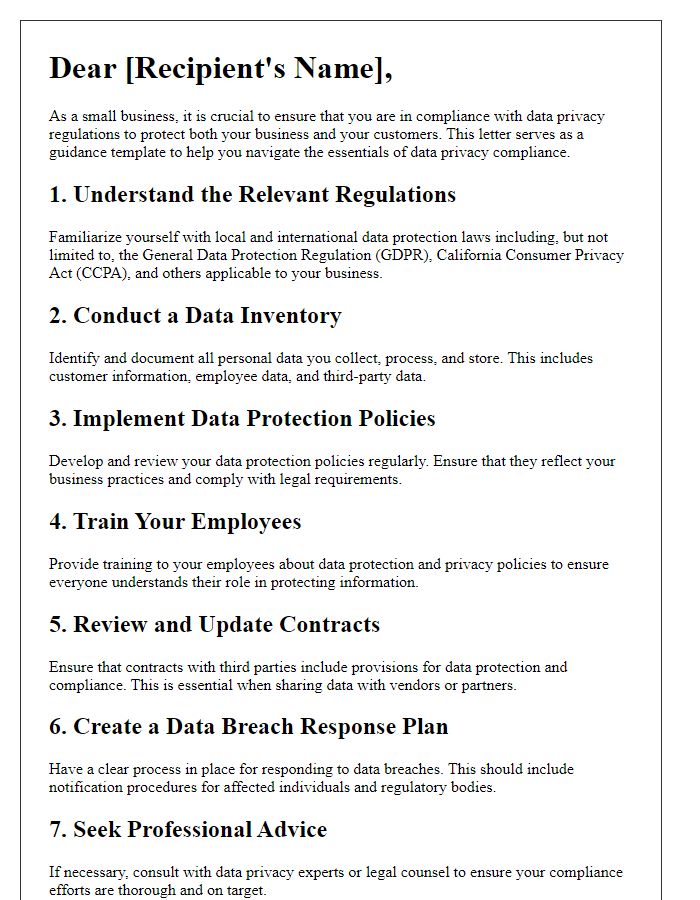
Letter template of data privacy compliance checks for healthcare organizations
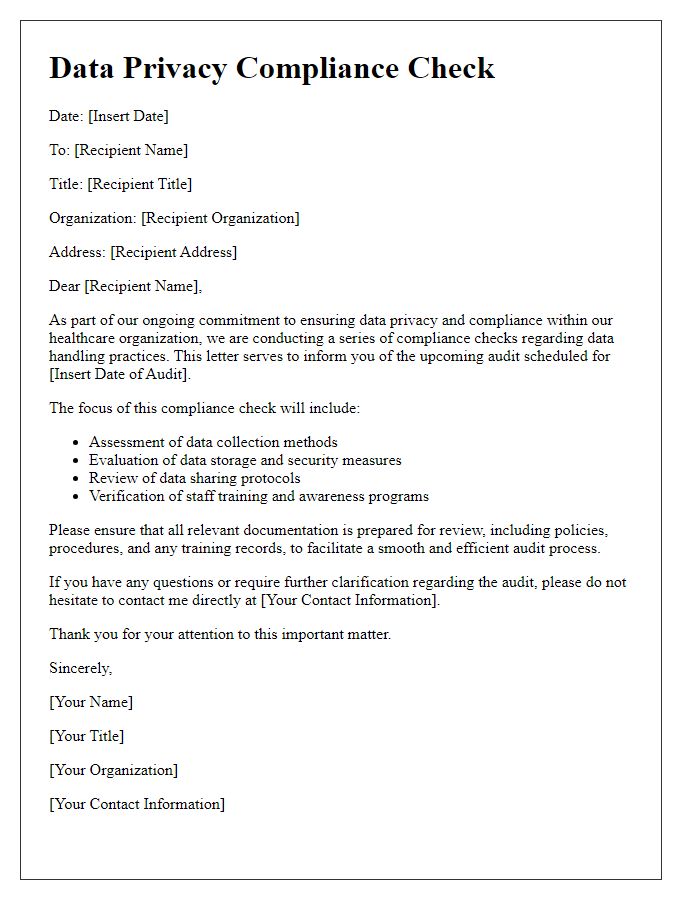
Letter template of data privacy compliance support for educational institutions
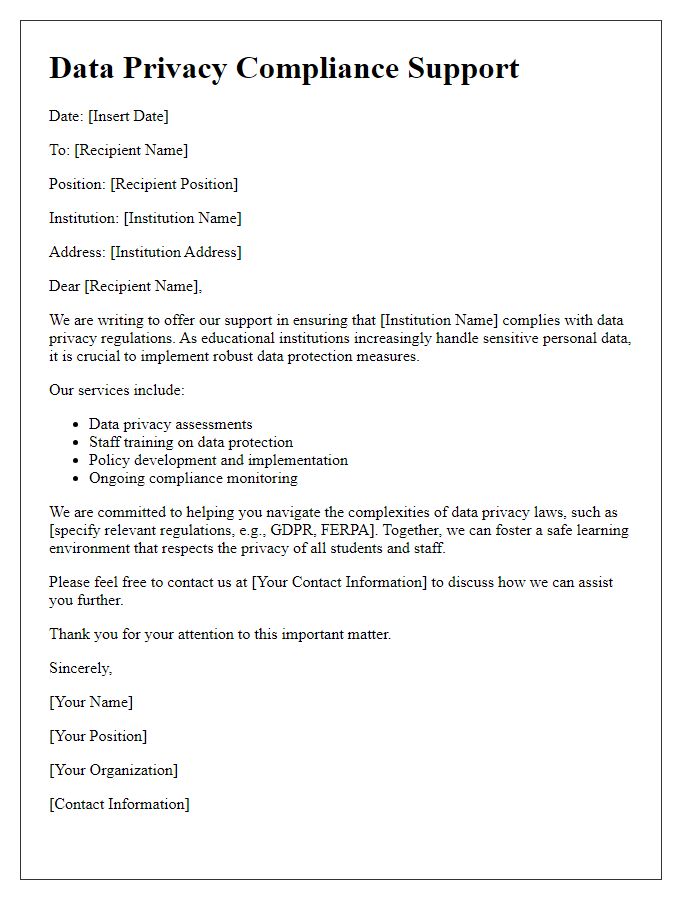
Letter template of data privacy compliance procedures for financial firms
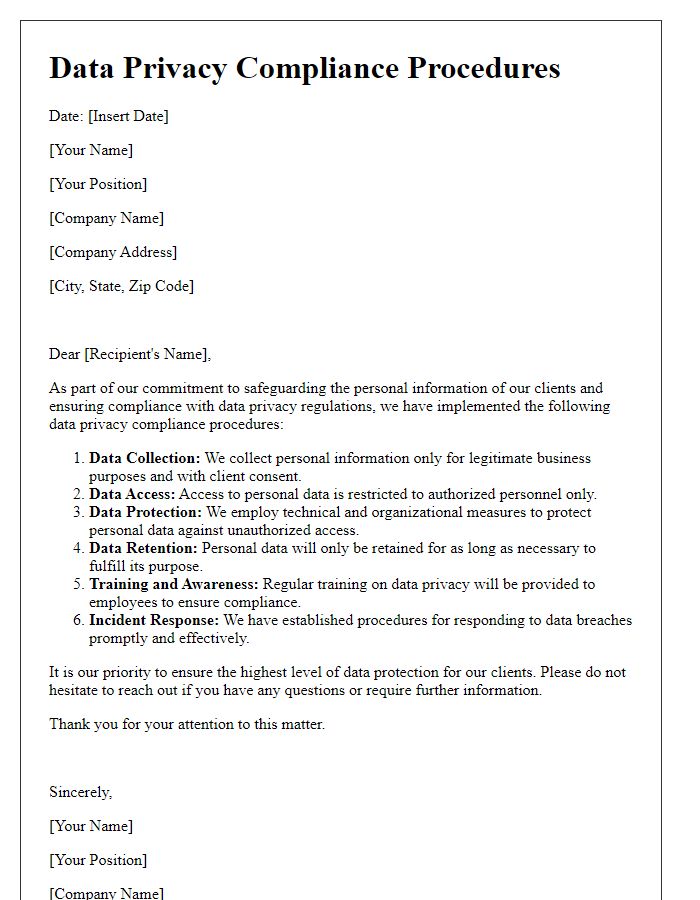
Letter template of data privacy compliance strategies for e-commerce platforms
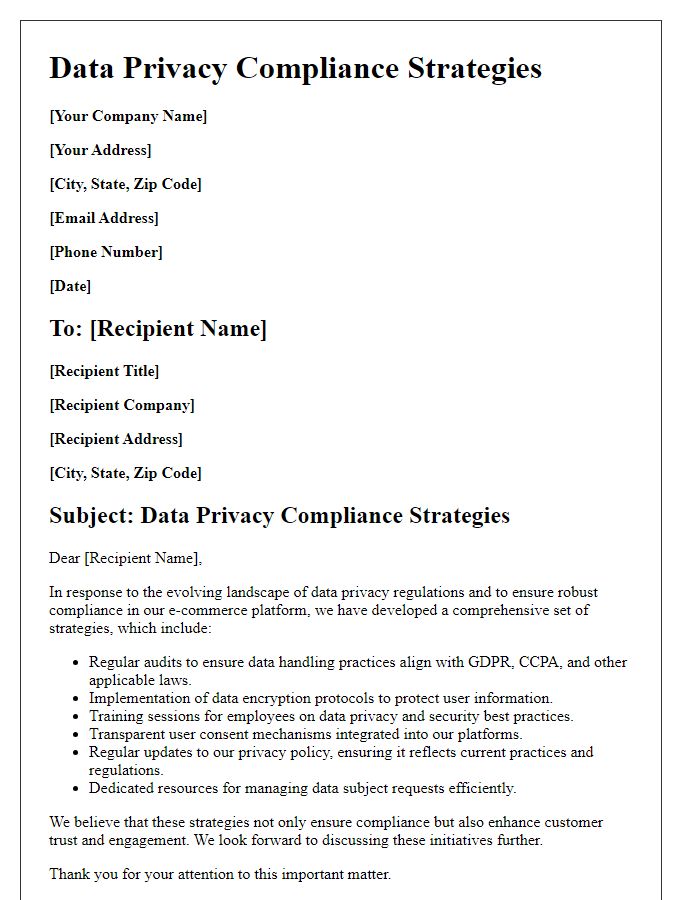

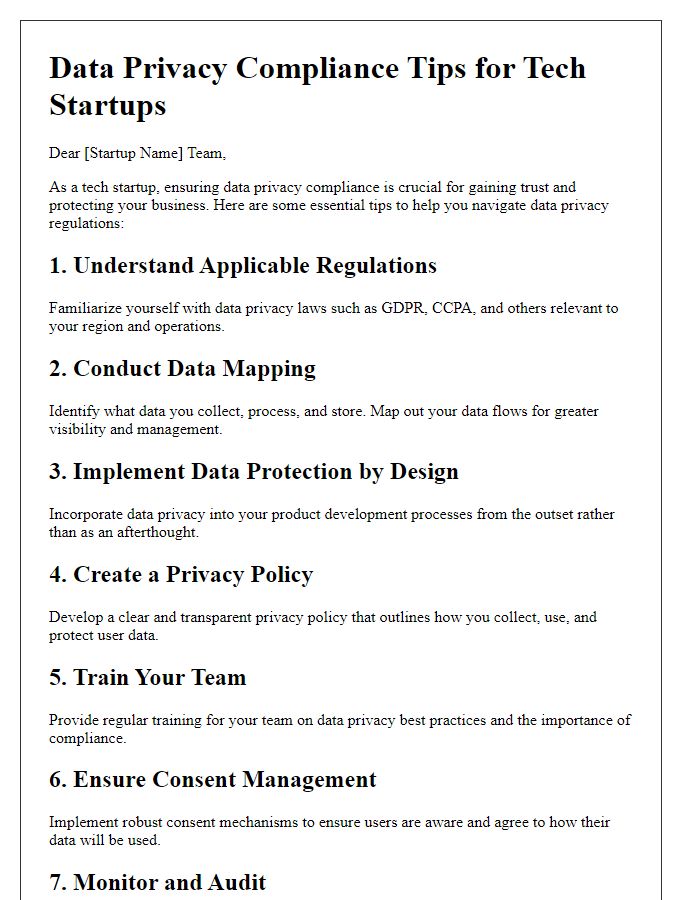
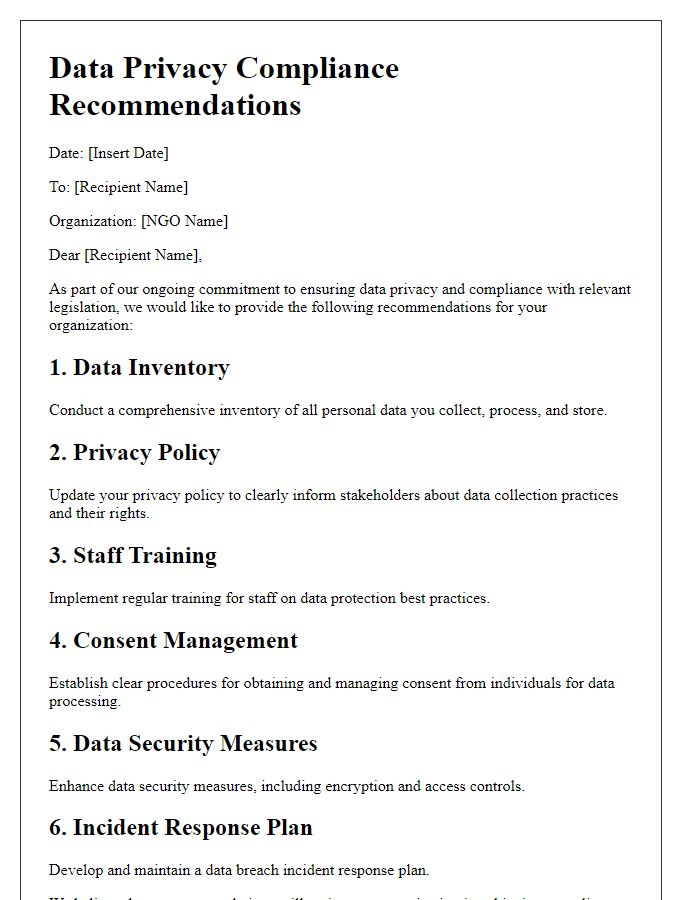
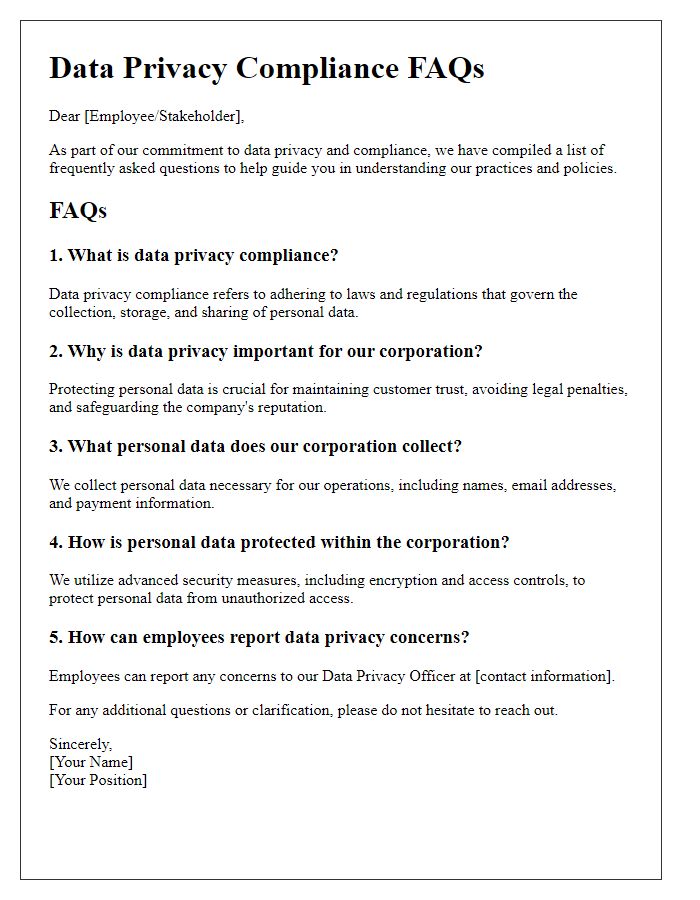
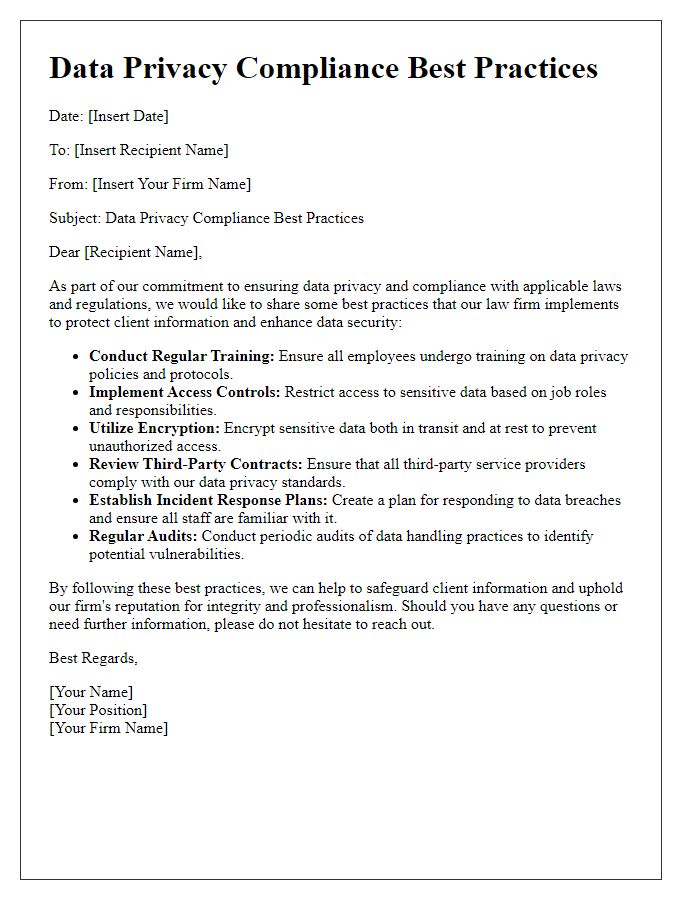
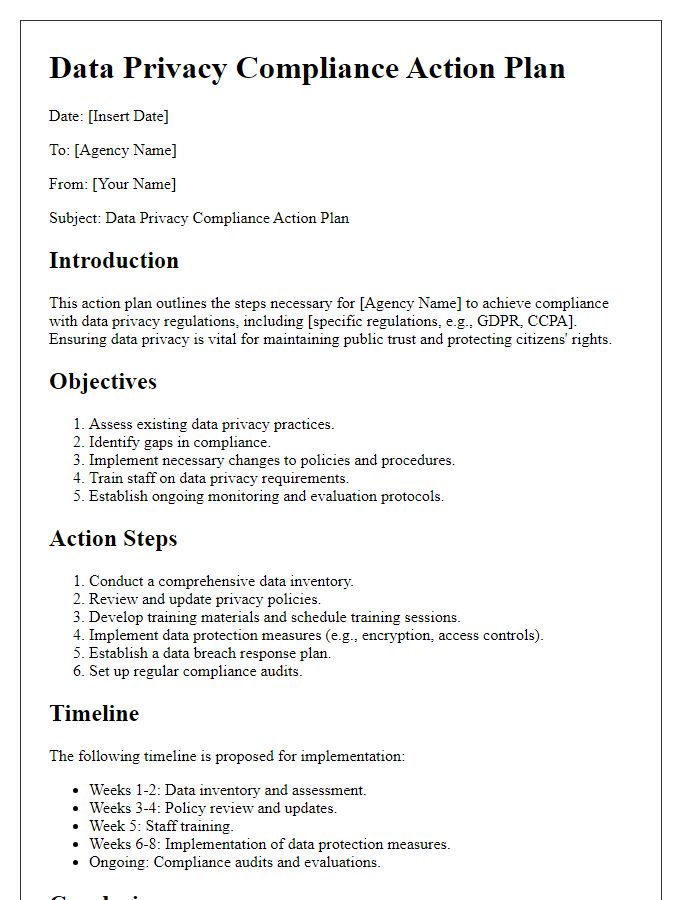

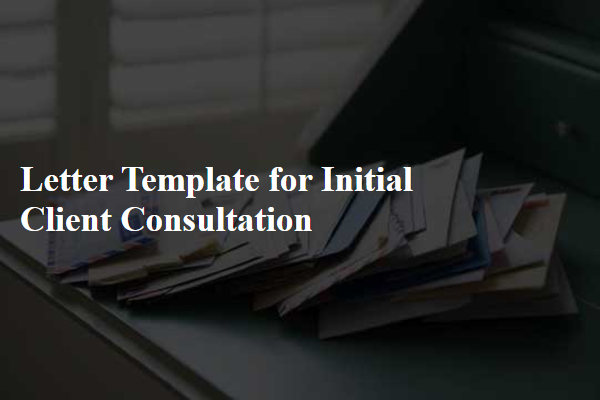
Comments